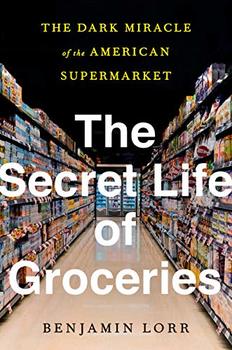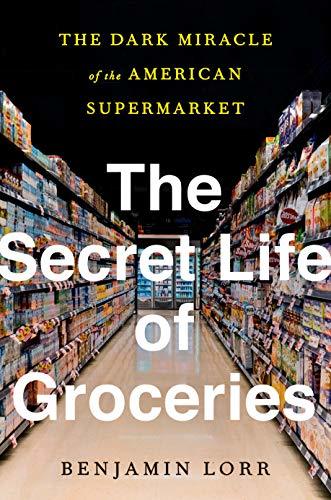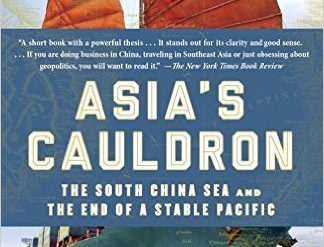
If you sometimes wonder, as I do, what good civilization has done for us, consider food. For most of the 300,000 years during which homo sapiens has walked on Earth, we devoted nearly all our waking hours to finding and securing food. That began to change about 10,000 years ago with the advent of agriculture. But as late as 1900, we Americans, living in one of the world’s most industrialized countries, still allocated forty percent of our income to pay for the stuff that sustains our lives. Now the comparable figure is ten percent—and “less than 3 percent of our population produces enough food to feed us all.” But, as Benjamin Lorr relates in The Secret Life of Groceries, we pay a high price for the marvels of the American food supply chain and its finest expression, the supermarket. It’s not a pretty picture. Not pretty at all.
The Secret Life of Groceries: The Dark Miracle of the American Supermarket by Benjamin Lorr (2020) 336 pages @@@@ (4 out of 5)
An in-depth picture of how food gets to our tables
This book “is the product of five years of research, hundreds of interviews, and thousands of hours tracking down and working alongside the buyers, brokers, marketers, and managers whose lives and choices define our diet.” And all that effort shows. Lorr traces the history of the American supermarket, but only briefly. Instead, he drills down into the industry as it operates today. He combines engaging human-interest reporting with in-depth investigative journalism to paint an impressionistic picture of the $683 billion industry that puts food on our tables.
Six character-driven chapters
Lorr lays out his story in six chapters, each devoted to one aspect of the grocery industry; most focus on a single individual. The cast of characters alone is instructive.
- Joe Coulombe (1930-2020) founded and ran Trader Joe’s. Widely regarded as a genius, Coulombe revolutionized the American supermarket with a radically new approach to merchandising food.
- Lynne Ryles is a veteran of the trucking industry whose troubled experiences hauling groceries epitomize the difficulties faced by so many of the nation’s 600,000 long-haul truckers.
- Entrepreneur Julie Busha runs a small North Carolina company that markets a condiment called Slawsa, which is sold in more than 4,200 stores nationwide.
- “Walter” is a supervisor at the Bowery Whole Foods Market in Manhattan. He stays on despite the inattention to quality, shrinking benefits, and deteriorating working conditions introduced by Amazon after its 2017 purchase of the company. The author worked there on the fish counter.
- Kevin Kelley consults with supermarket executives about how to exit from the race to the bottom that has so many stores futilely attempting to compete only on price.
- Tun-Lin was for many years a slave working on a Thai ship in the Andaman Sea trawling for shrimp. The billion-dollar Thai shrimp industry accounts for “just under 10 percent of the global supply,” and the United States buys more than fifty percent of it. “NGOs estimate 17 to 60 percent of Thai shrimp includes slave labor like Tun-Lin.”
An even-handed approach, both muckraking and goggle-eyed wonder
Lorr’s approach in The Secret Life of Groceries is even-handed. The book would make muckrakers such as Upton Sinclair and Lincoln Steffens proud in its exposé of the trucking industry and the slave labor that supplies so much of our shrimp. Yet it’s impossible to read this book and emerge without a sense of wonder at how extraordinarily intricate and vast is our food supply chain. Nobody could possibly invent the American supermarket from a standing start. It’s so complicated, it seems as though it really shouldn’t work. But somehow it does. And Benjamin Lorr does yeoman’s work explaining how.
For further reading
Recently I reviewed another fascinating book about the merchandising of food: Chocolate Wars: The 150-Year Rivalry Between the World’s Greatest Chocolate Makers by Deborah Cadbury (In Chocolate Wars, what’s gone wrong with business).
You might also be interested in:
- My 10 favorite books about business history (plus dozens of others)
- Top 20 popular books for understanding American history
And you can always find my most popular reviews, and the most recent ones, plus a guide to this whole site, on the Home Page.



























